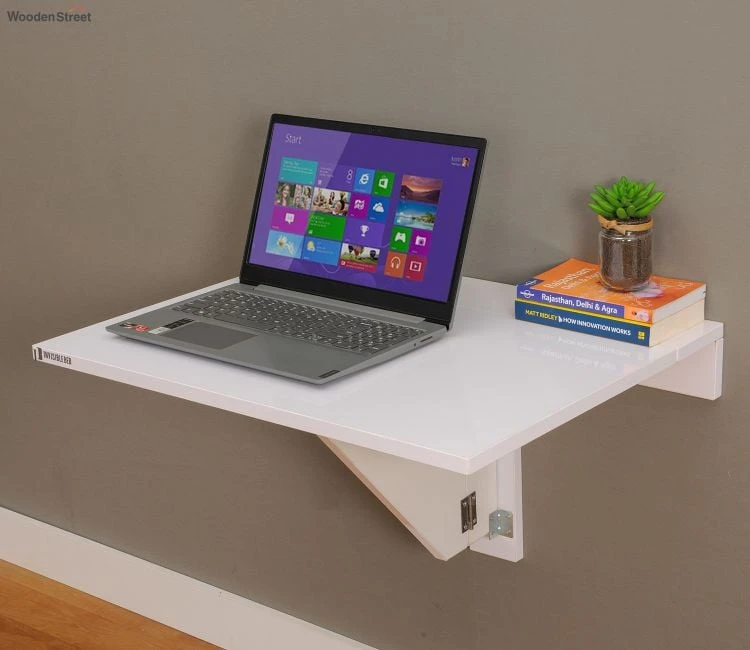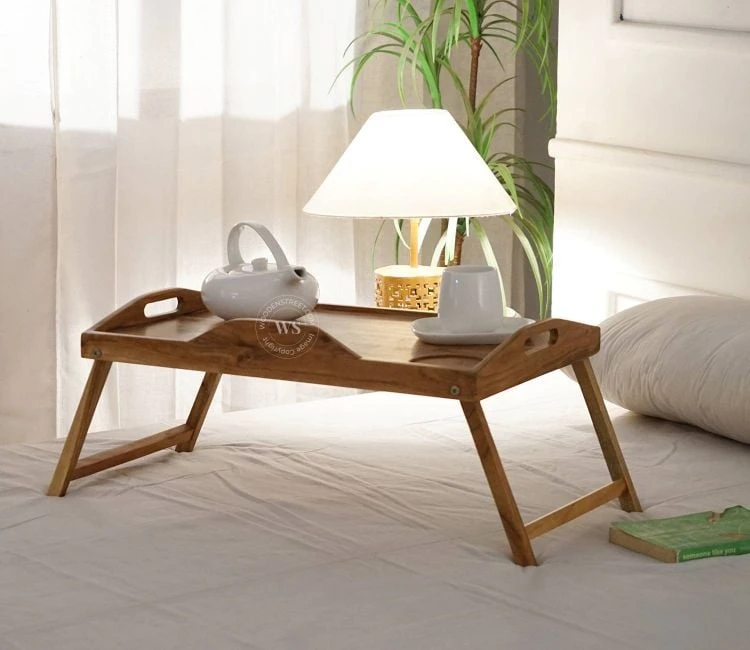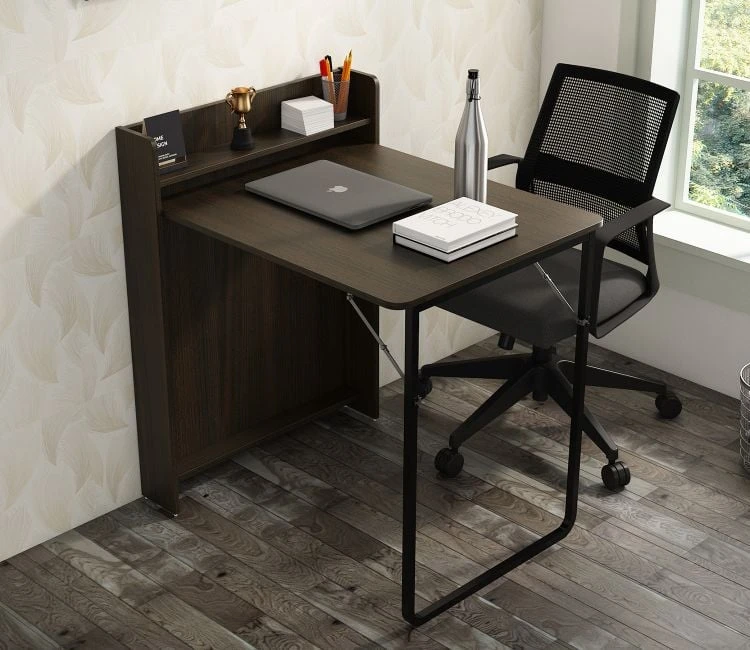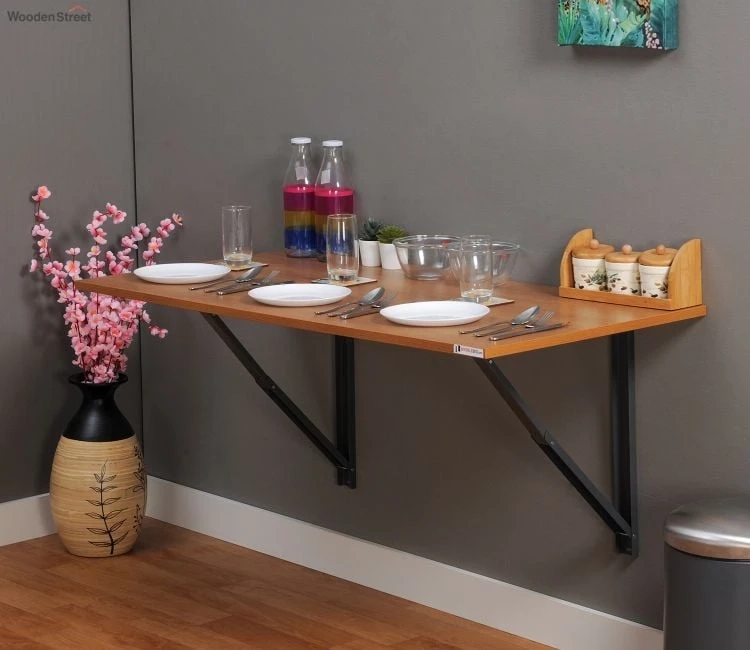Folding tables have become essential in modern homes due to their portability, space-saving design, and versatile functionality. Whether you're setting up a temporary workspace, dining area, or planning for events, folding tables offer a practical solution. However, when it comes to choosing between wooden and metal folding tables, many buyers are left wondering which material suits their needs best.
In this article, we’ll break down the pros and cons of wood vs. metal folding tables to help you make an informed purchase based on your lifestyle, usage, and design preferences.

1. Durability: Which One Lasts Longer?
Wood Folding Tables: Solid wood or engineered wood folding table are known for their sturdy build. When made from quality wood like Sheesham or engineered wood with a strong frame, they can last for years. However, they are slightly more prone to wear and tear if exposed to moisture or rough handling.
Metal Folding Tables: Metal folding tables, usually made from stainless steel or powder-coated iron, are built to withstand more rugged use. They’re less likely to warp or crack, and they resist dents and scratches better than wooden surfaces. If durability under heavy use is a priority, metal wins this round.
Winner: Metal folding tables for high durability and rough use.
2. Aesthetics and Interior Appeal
Wood Folding Tables: Wooden tables bring a warm, timeless charm to your space. They blend beautifully with most interior styles, be it traditional, modern, or minimal. The natural grain and texture add character that metal lacks.
Metal Folding Tables: While metal tables look sleek and industrial, they may not appeal to those looking for a cozy or elegant touch. However, newer designs combine metal frames with wooden tops for a modern fusion.
Winner: Wood folding tables for visual appeal and home décor alignment.
3. Weight and Portability
Wood Folding Tables: Depending on the type of wood used, these tables can be heavier and bulkier to carry around. While sturdy, their weight can reduce overall portability if you need to move or store them often.
Metal Folding Tables: Generally lighter than solid wood, metal tables are easier to carry, set up, and fold away. Many metal models are designed for quick setup, making them ideal for events, exhibitions, or temporary setups.
Winner: Metal folding tables for portability and travel-friendly use.

4. Stability and Load Capacity
Wood Folding Tables: Due to their heavier structure, wood tables usually offer excellent stability. They don’t wobble easily, and they can support a good amount of weight—especially in dining or study setups.
Metal Folding Tables: High-quality metal tables also provide good stability, especially those with anti-skid feet and sturdy joints. However, cheaper metal models may feel flimsy or shaky.
Winner: Tie. Depends on the build quality of each.
5. Maintenance and Cleaning
Wood Folding Tables: Wood requires a bit more care. You’ll need to protect it from water damage, stains, and scratches. Regular dusting and occasional polishing can keep it in top shape.
Metal Folding Tables: Metal tables are low maintenance. A quick wipe with a damp cloth is usually enough. They are also resistant to spills and stains, making them ideal for kids or outdoor usage.
Winner: Metal folding tables for low-effort maintenance.

6. Cost and Value
Wood Folding Tables: Wooden tables, especially solid wood ones, can be more expensive. However, they add value in terms of aesthetics and longevity when properly cared for.
Metal Folding Tables: Typically more affordable, metal folding tables offer a cost-effective solution without sacrificing utility. They are great for budget buyers or those who need temporary furniture.
Winner: Metal folding tables for affordability.
Final Verdict: Which One Should You Choose?
Choose a Wood Folding Table if:
- You want a stylish piece that enhances your room décor.
- You prefer a stable and elegant table for indoor use.
- Aesthetic value matters more than portability.
Choose a Metal Folding Table if:
- You need something lightweight, portable, and affordable.
- Your primary concern is durability and easy maintenance.
- You're using it for outdoor events or heavy-duty tasks.
Both wood and metal folding tables have their unique strengths. The right choice ultimately depends on how and where you plan to use the table. Whether you're buying for your home, office, or event space, balance design, durability, and functionality to get the best value for your investment.


